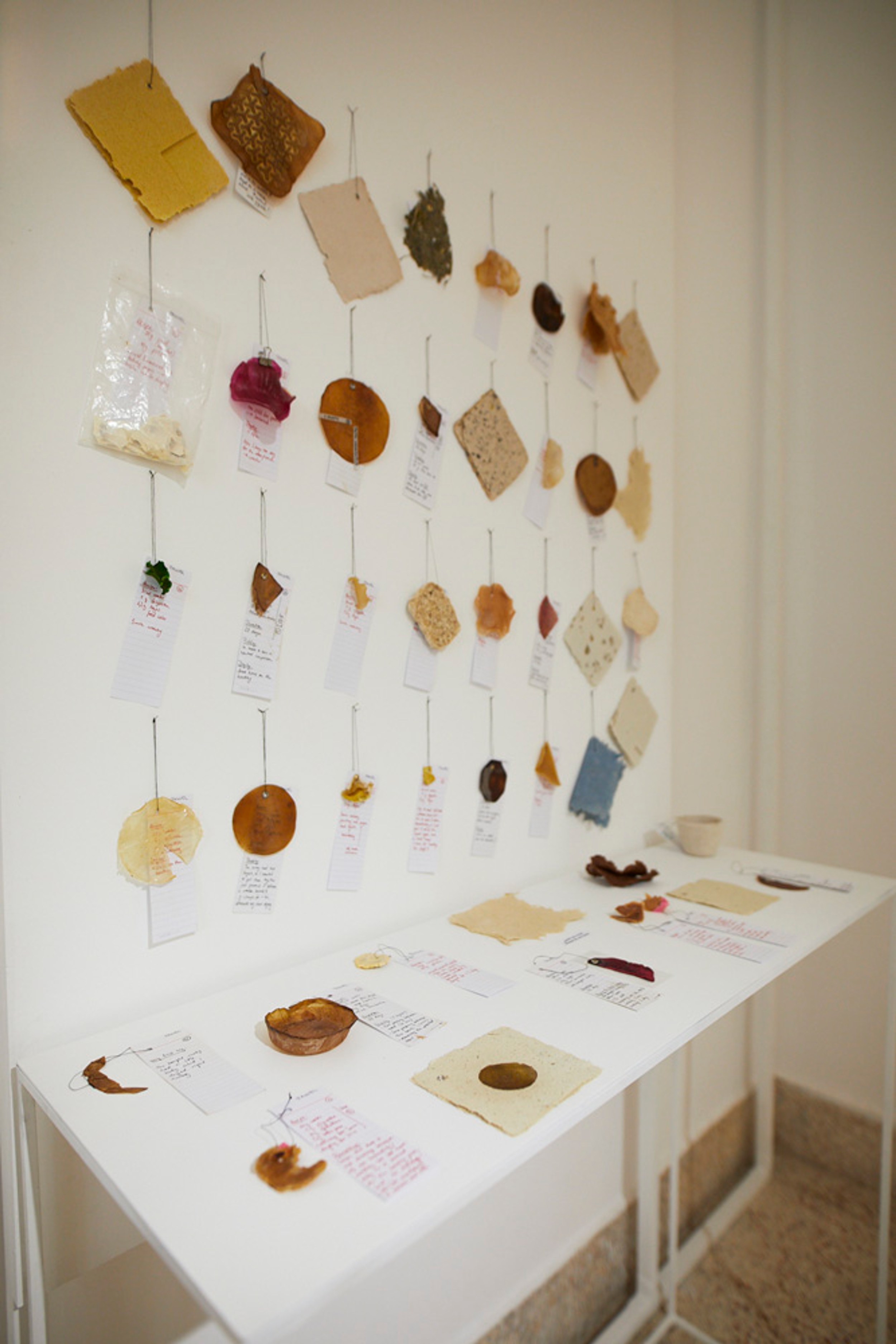Body
Material Innovation
The Material Innovation exhibition, which took place during Amman Design Week 2019, showcases the results of a workshop series titled the Textile Innovation Lab, in which participants were introduced to growing Kombucha leather, paper-making, and making bioplastics, to develop new materials and prototypes.
TEXTILE INNOVATION LAB
Throughout history, Jordanians have been primary in the creation of cultural objects and used in practical, day-to-day uses — in architecture, as we see in Bedouin tents, furniture, products, and clothing and fashion. More than that, textiles have been an important part of the culture and identity of a place, reflecting its history, lifestyles, economy, and values.
The Textile Innovation Lab workshop series was a deep-dive into local possibilities for the textile industry, ranging from material explorations and fabric processes to weaving techniques, applications, and uses.
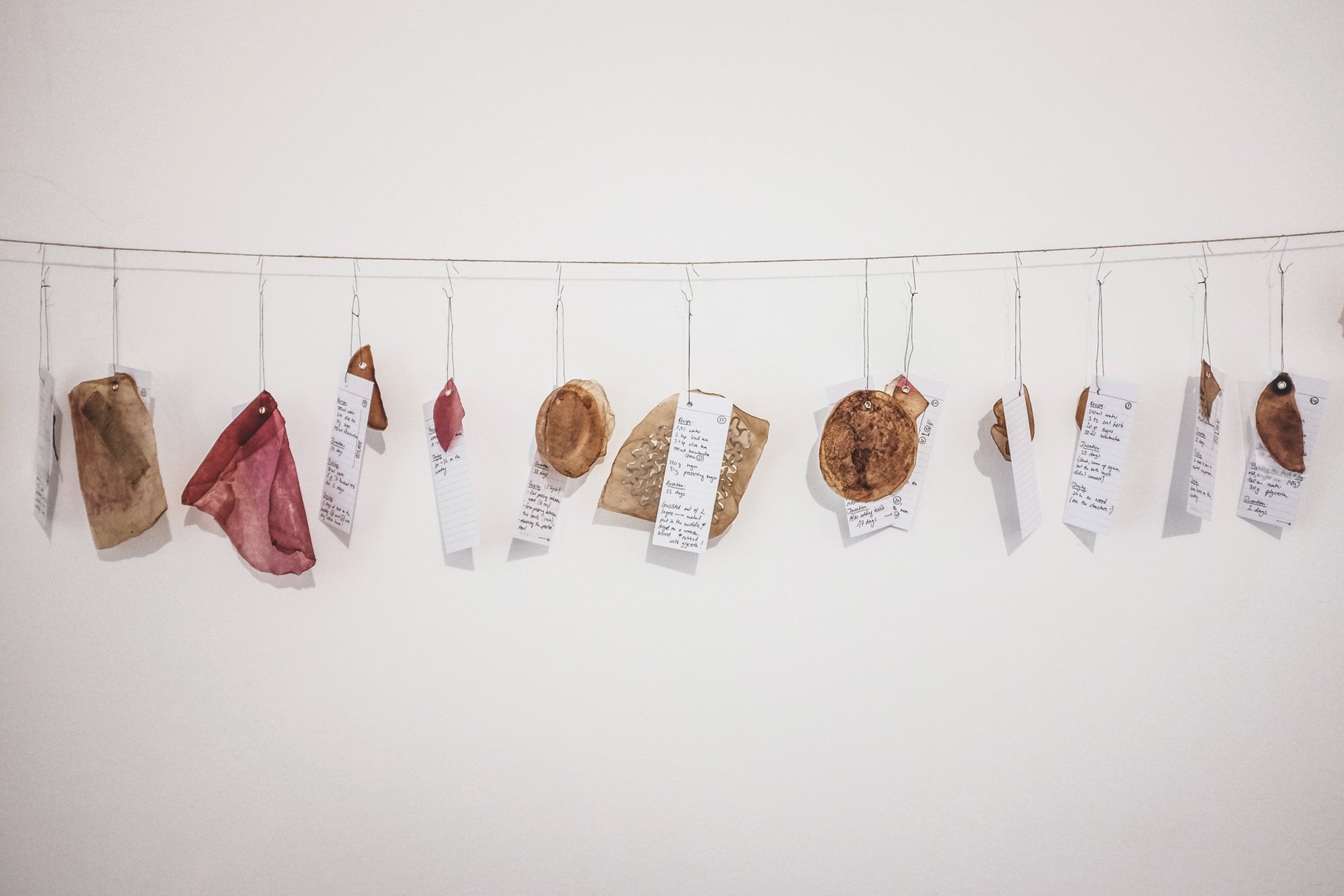
Material Innovation –– in collaboration with the Goethe Institute.
The Material Innovation exhibition, which took place during Amman Design Week 2019, showcases the results of a workshop series titled the Textile Innovation Lab, in which participants were introduced to growing Kombucha leather, paper-making, and making bioplastics, to develop new materials and prototypes.
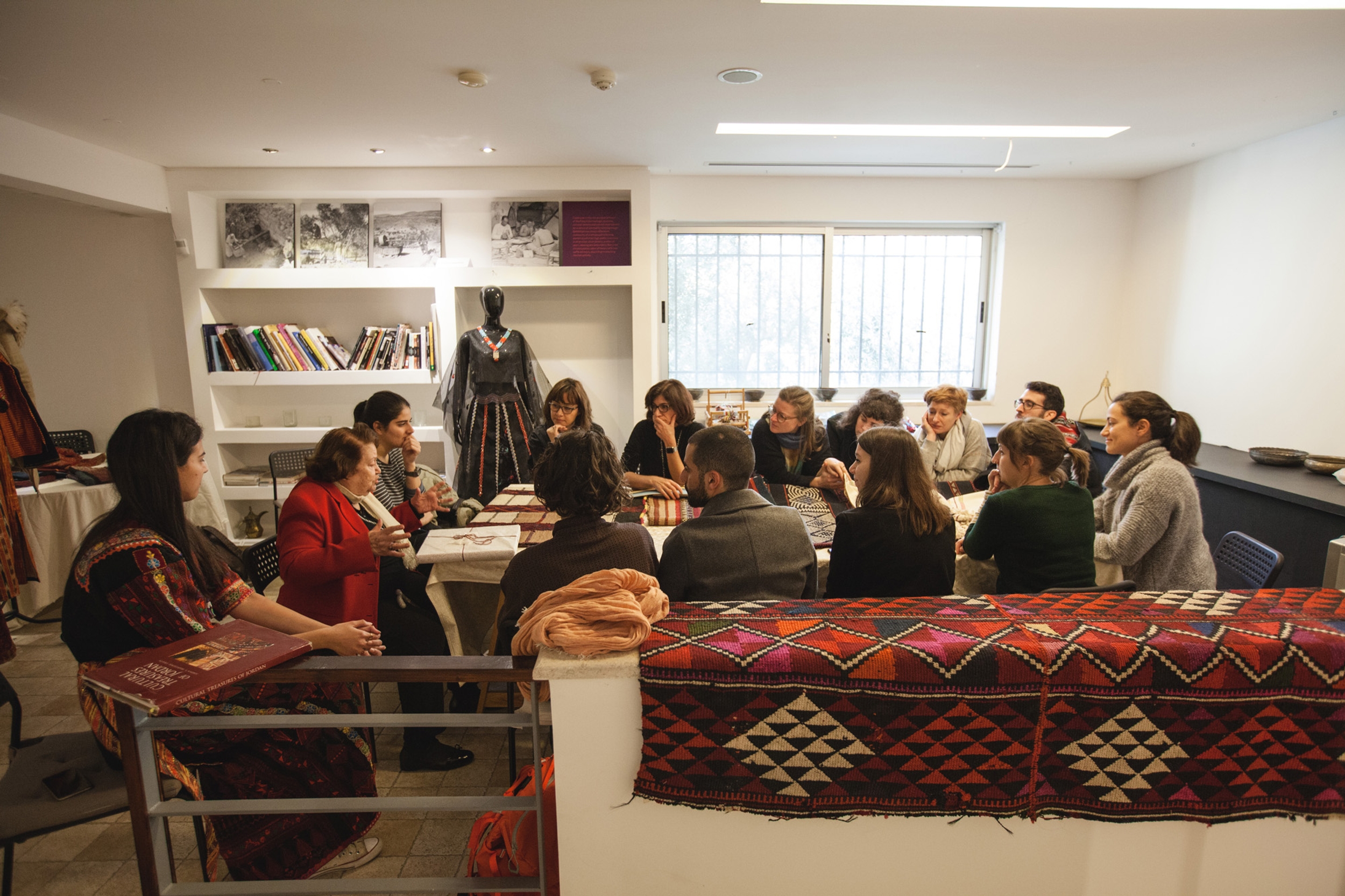
Widad Kawar Home for Arab Dress –– Meeting and workshop at Tiraz.
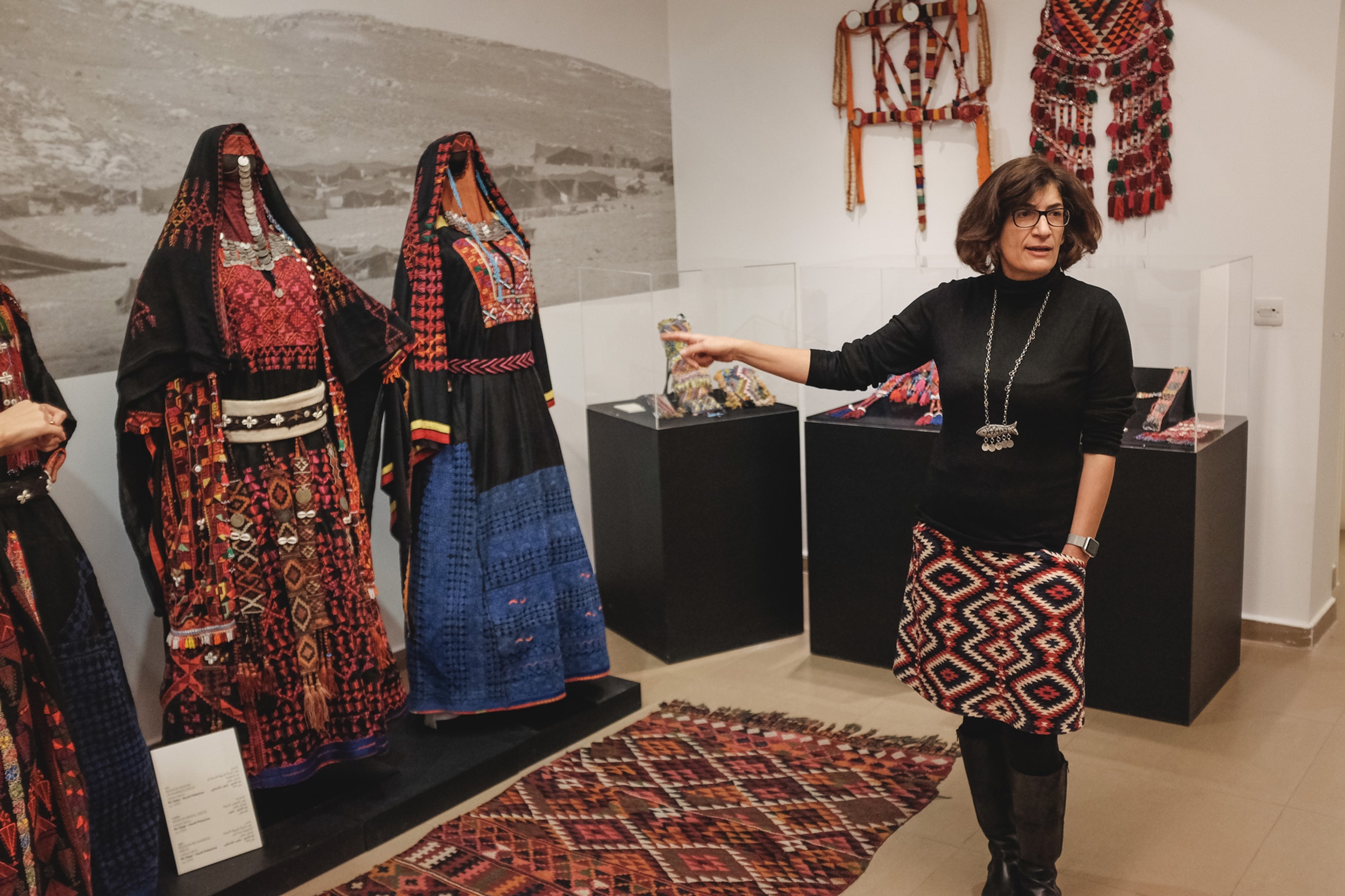
There has been a recent upsurge of interest by fashion designers, architects, artisans, and craftspeople working with textiles to preserve, collect, and take inspiration from tradition in an attempt to redesign and create a contemporary understanding of textile – both in aesthetics and in the sustainability of its production and distribution.
During their visit to ‘Tiraz: Widad Kawar Home for Arab Dress’, participants were introduced to Bedouin weaving patterns and techniques. They learned about the traditional dresses of Jordan and Palestine and the differences between them.
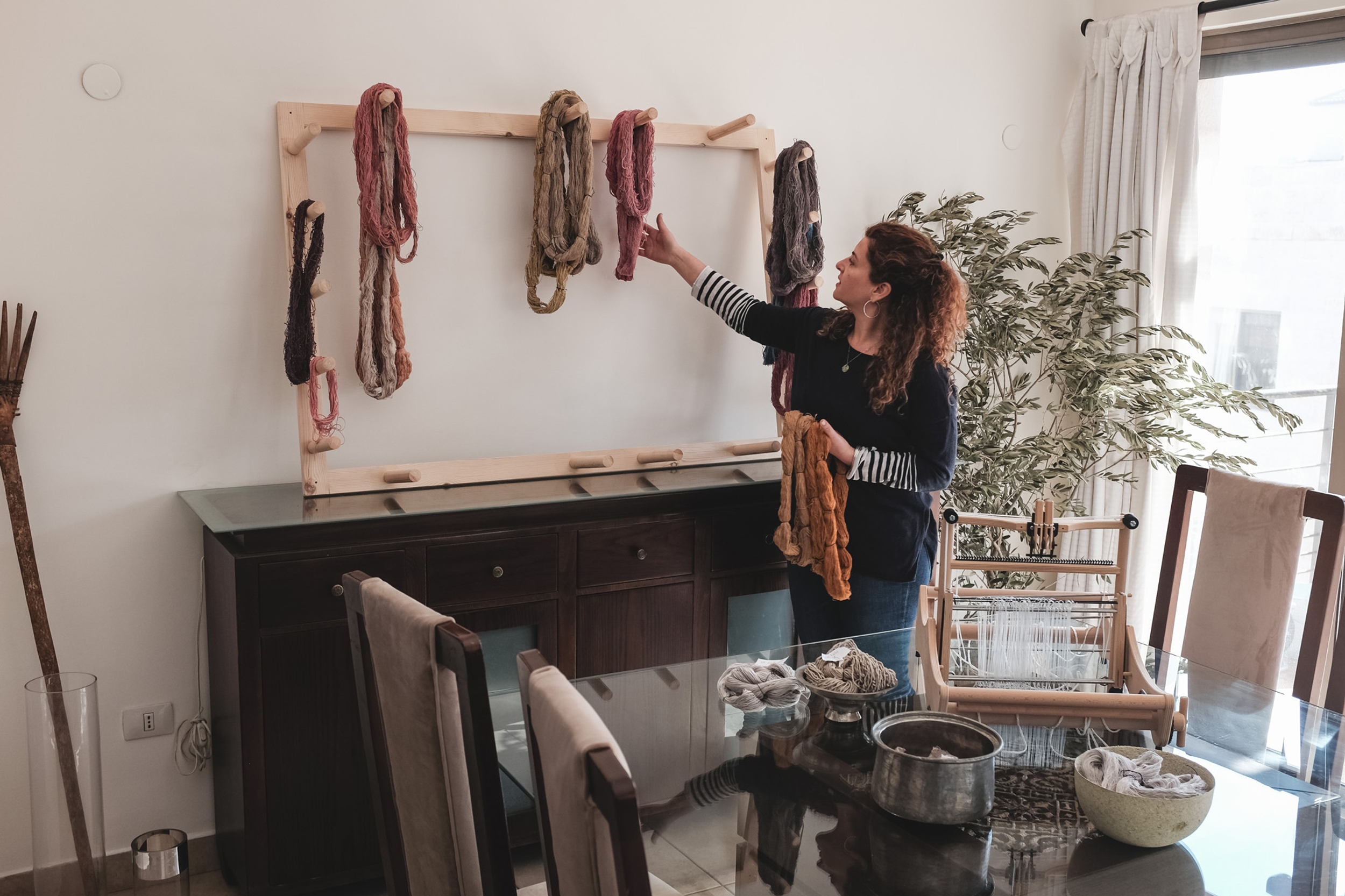
Tan Crafts Jo –– Studies of natural dyes and textiles.
At Iraq Al Amir Women’s Cooperative, the participants had a firsthand introduction to the processes of paper-making using natural and recycled materials, and they also participated in a hands-on workshop in weaving and ceramics.
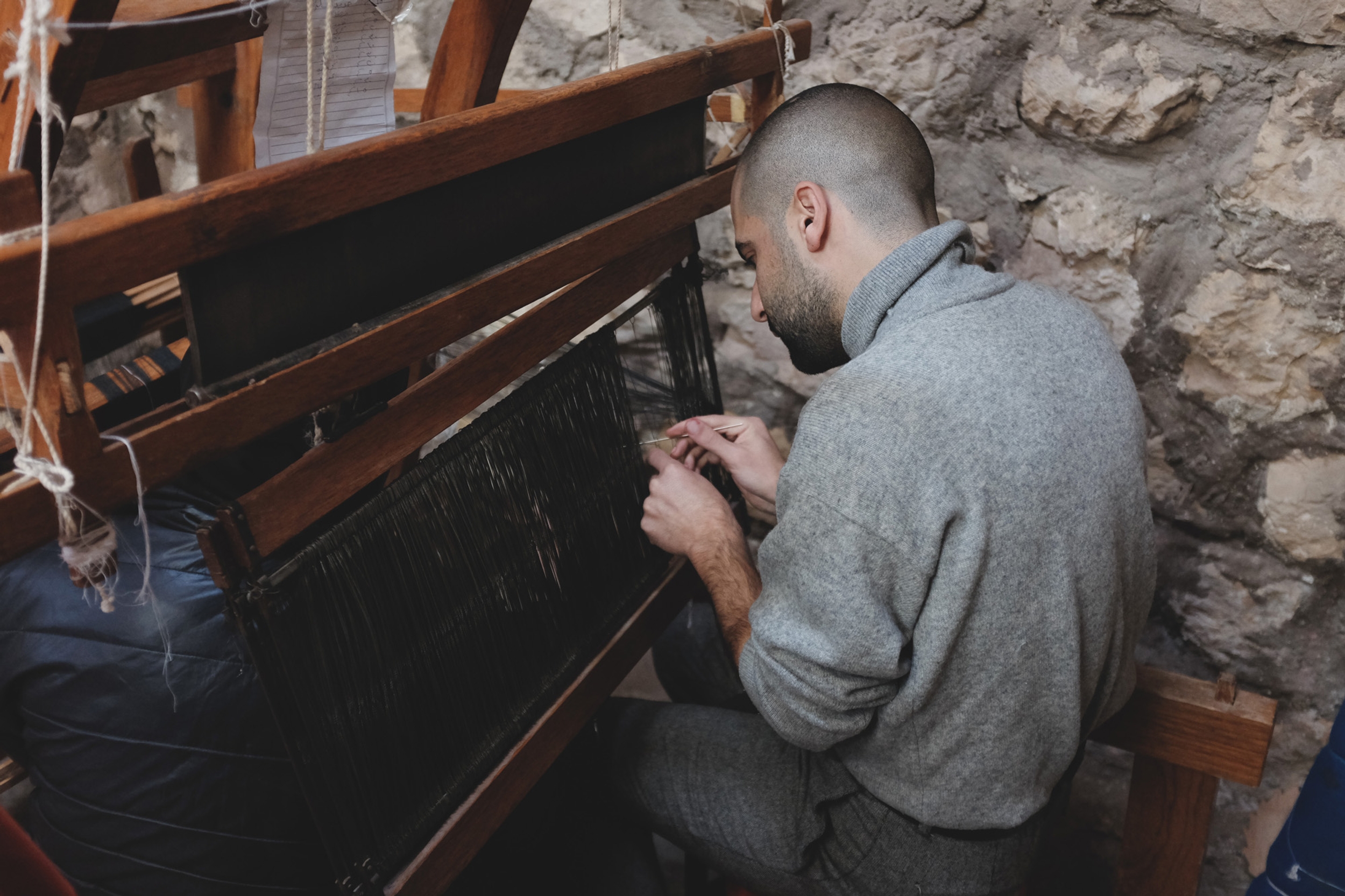
Traditional loom weaving at Iraq Al Amir.
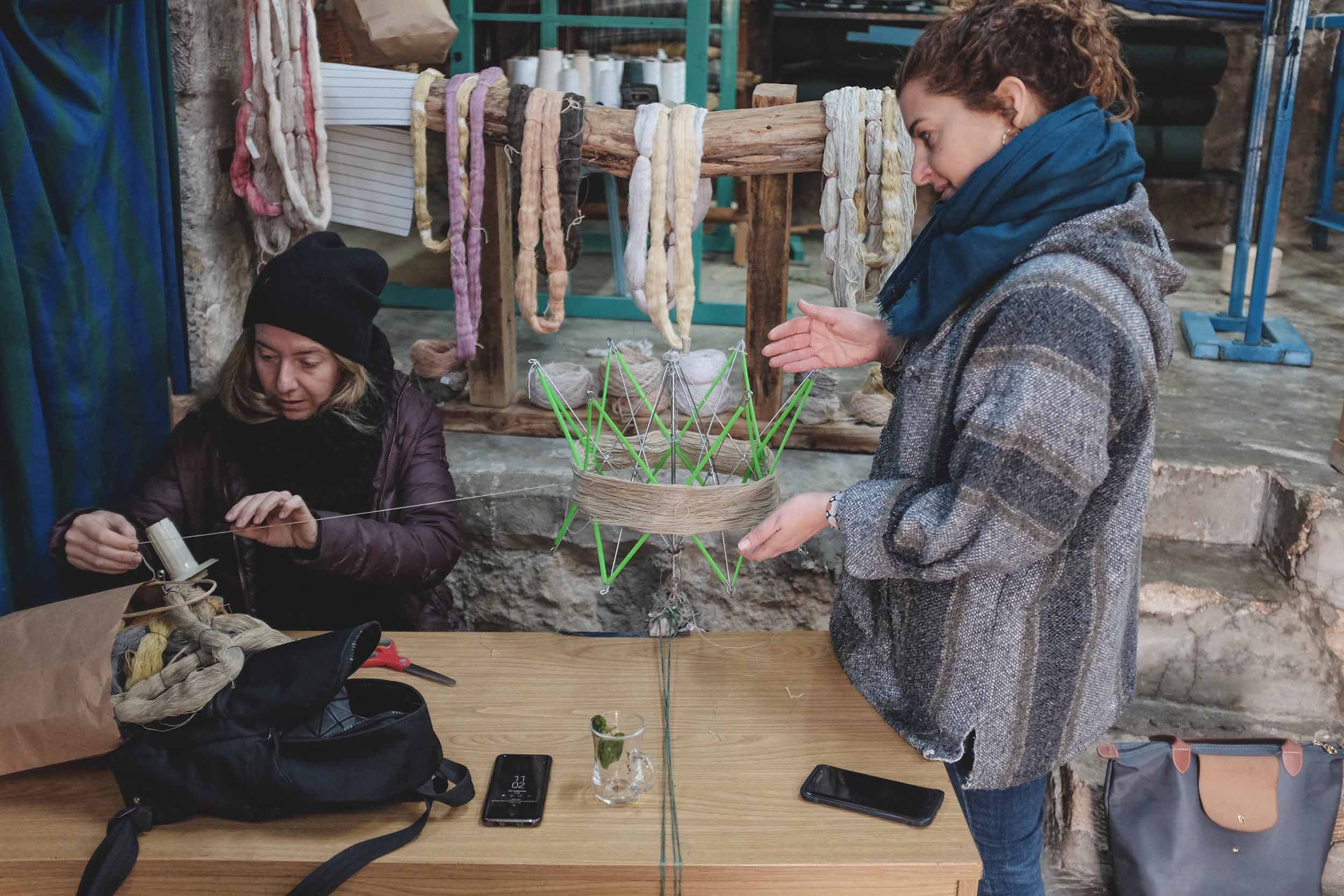
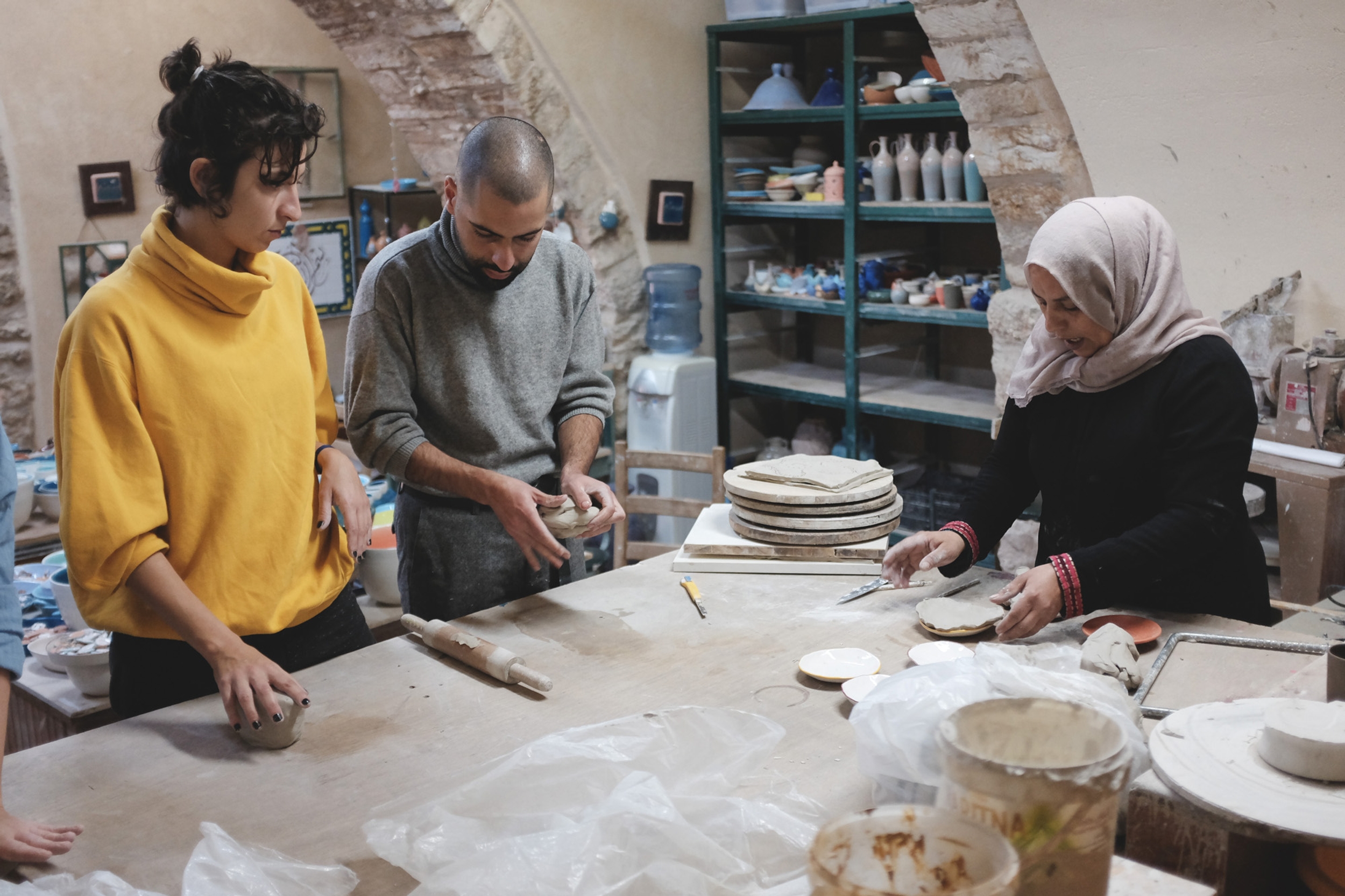
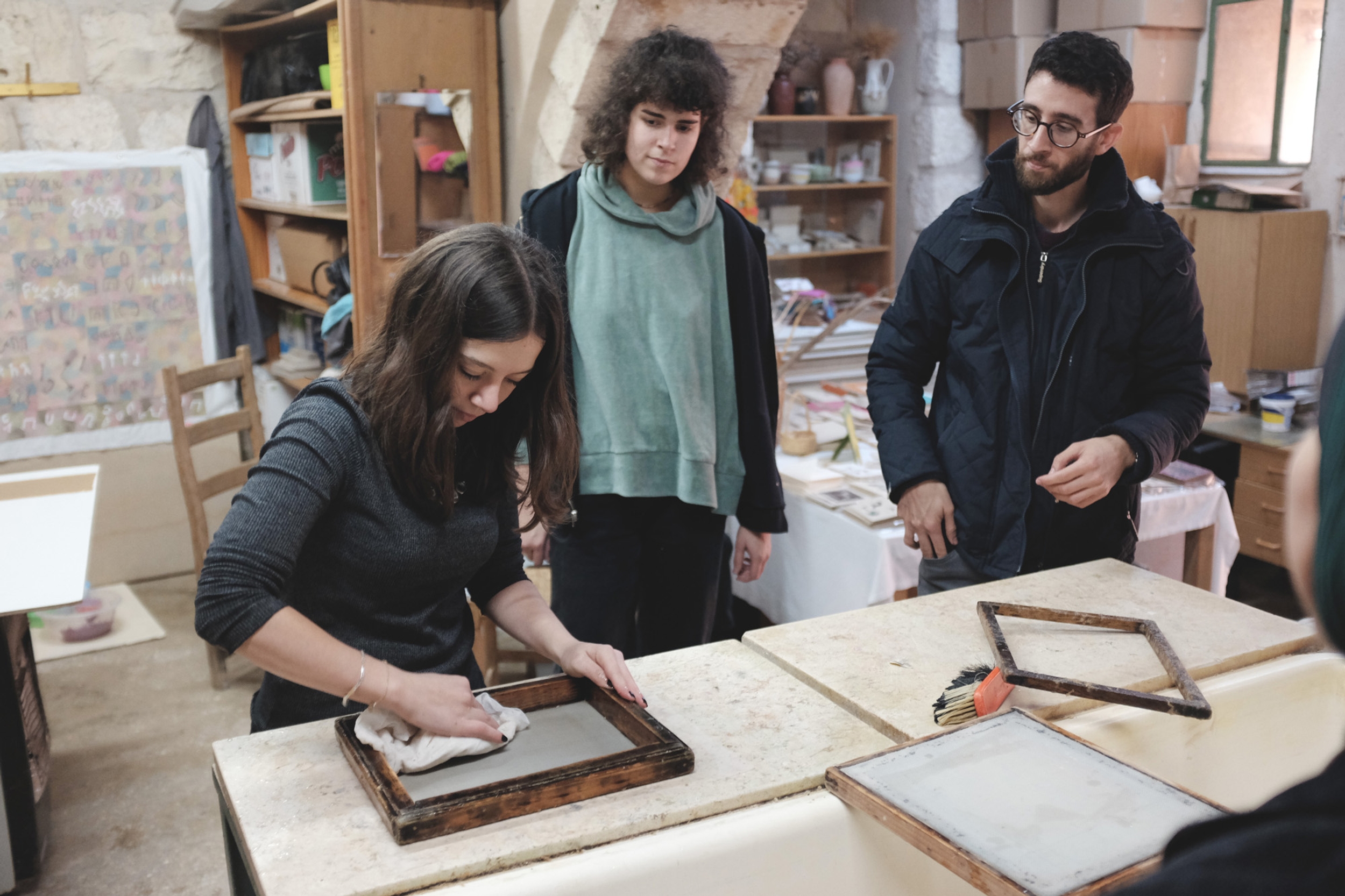
Paper-making using recycled plant materials at Iraq Al Amir.
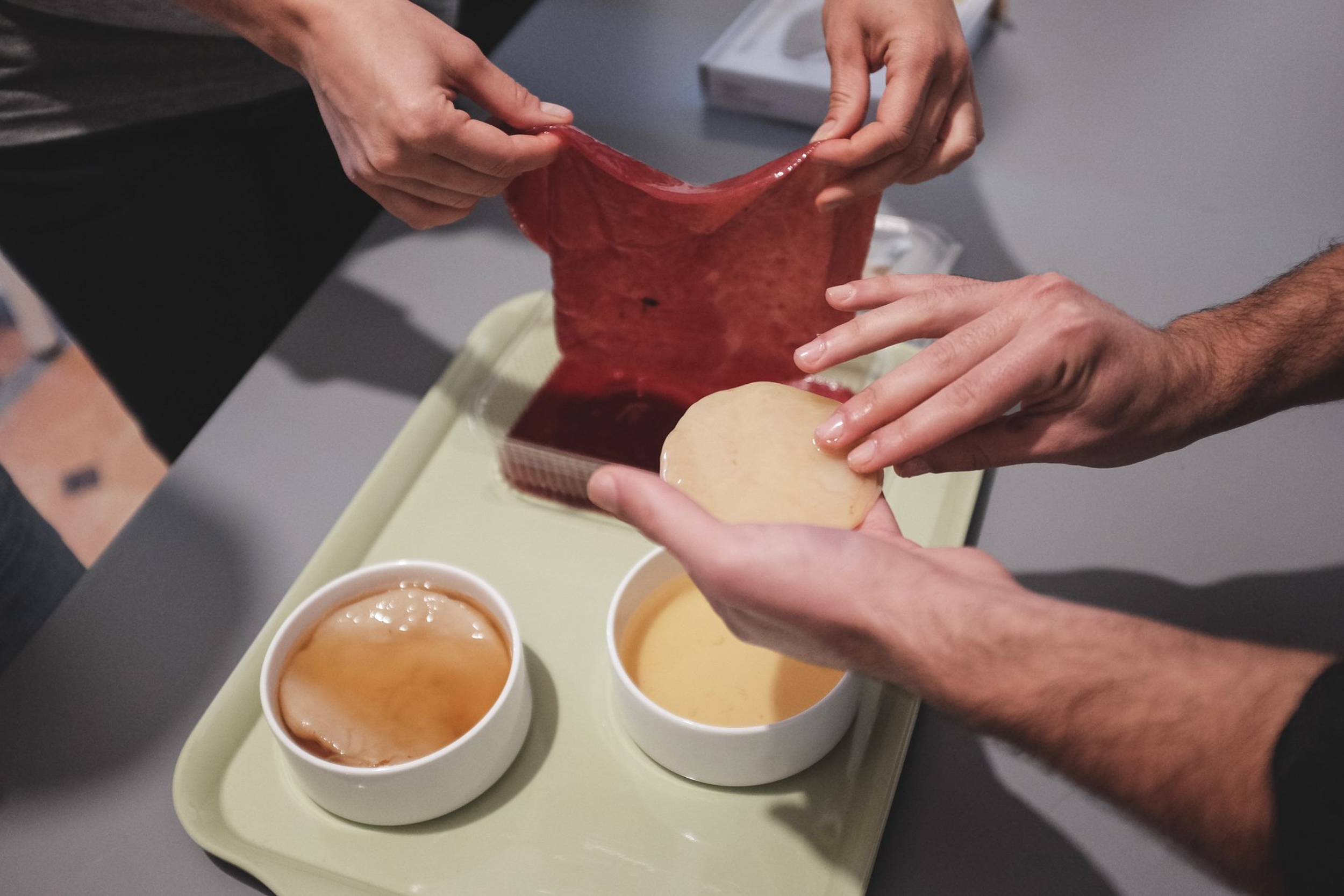
Workshop on bioplastics, facilitated by Annette Fauvel.
MATERIAL INNOVATION EXHIBITION
The Material Innovation exhibition introduces new processes in which sustainable and alternative materials can be produced and used in textile applications. It showcases works by designers who have experimented with merging the traditional techniques of natural dyeing, paper-making, embroidery, and weaving, with new experimental methods and materials such as bioplastics and kombucha leather growing.

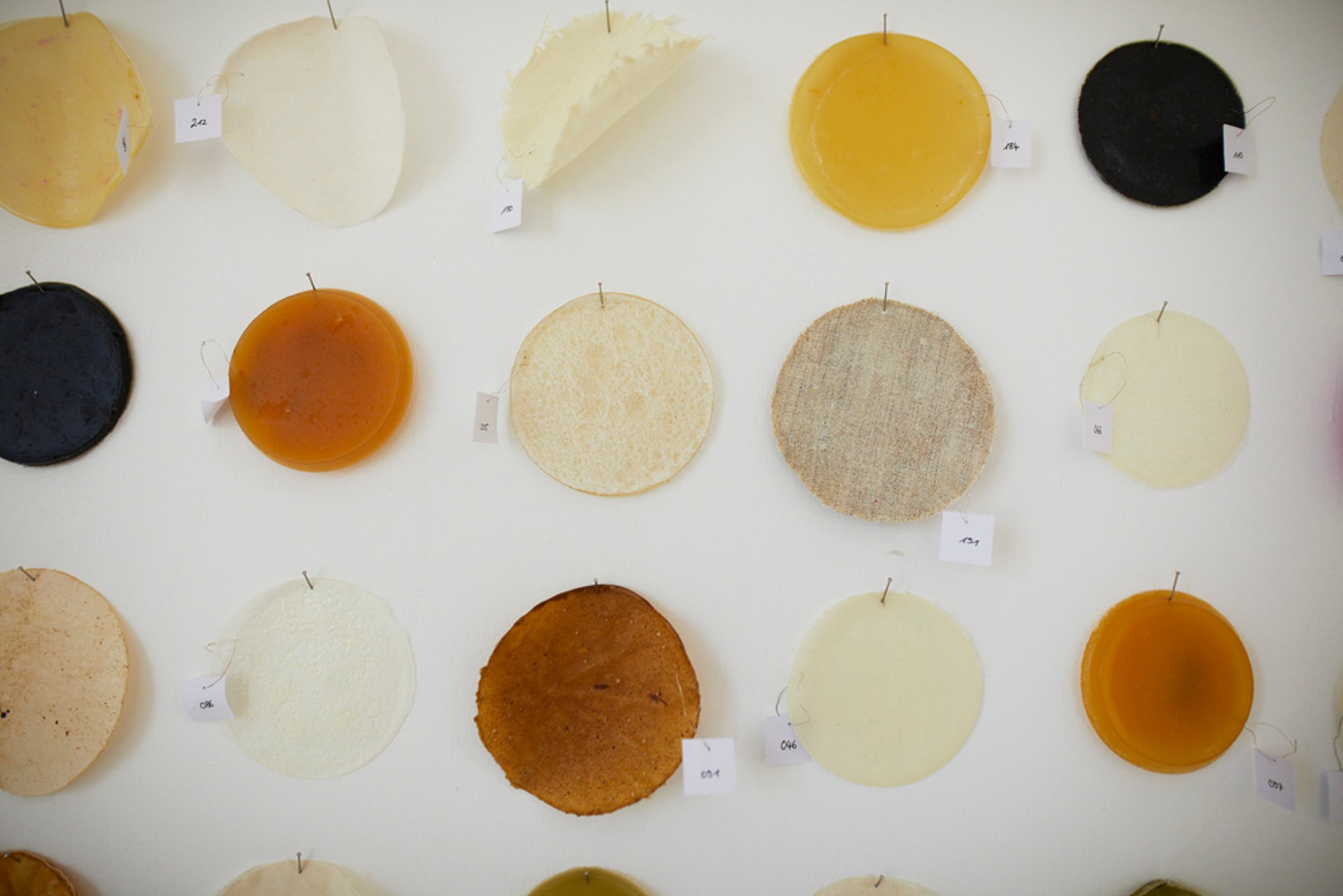
Katja Lonzec — Scoby Science, 2018 - 2019.
In an attempt to search for organic alternatives and the need to rethink our relationship with material consumption, this work explores a material that lasts within a single product life cycle; a material that is durable and self-expiring; a material that is able to recreate itself nearly endlessly and doesn‘t require any finite resources.
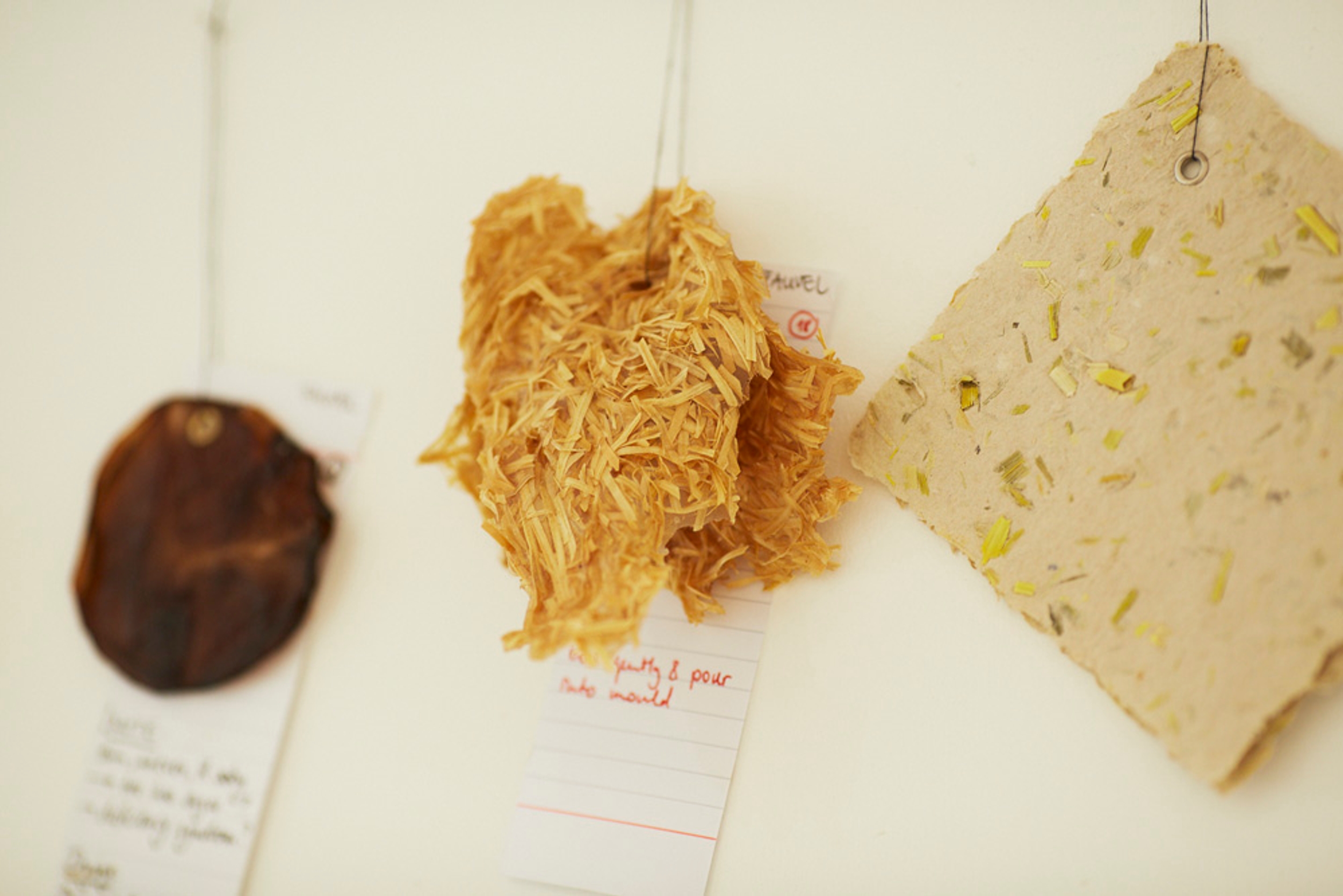
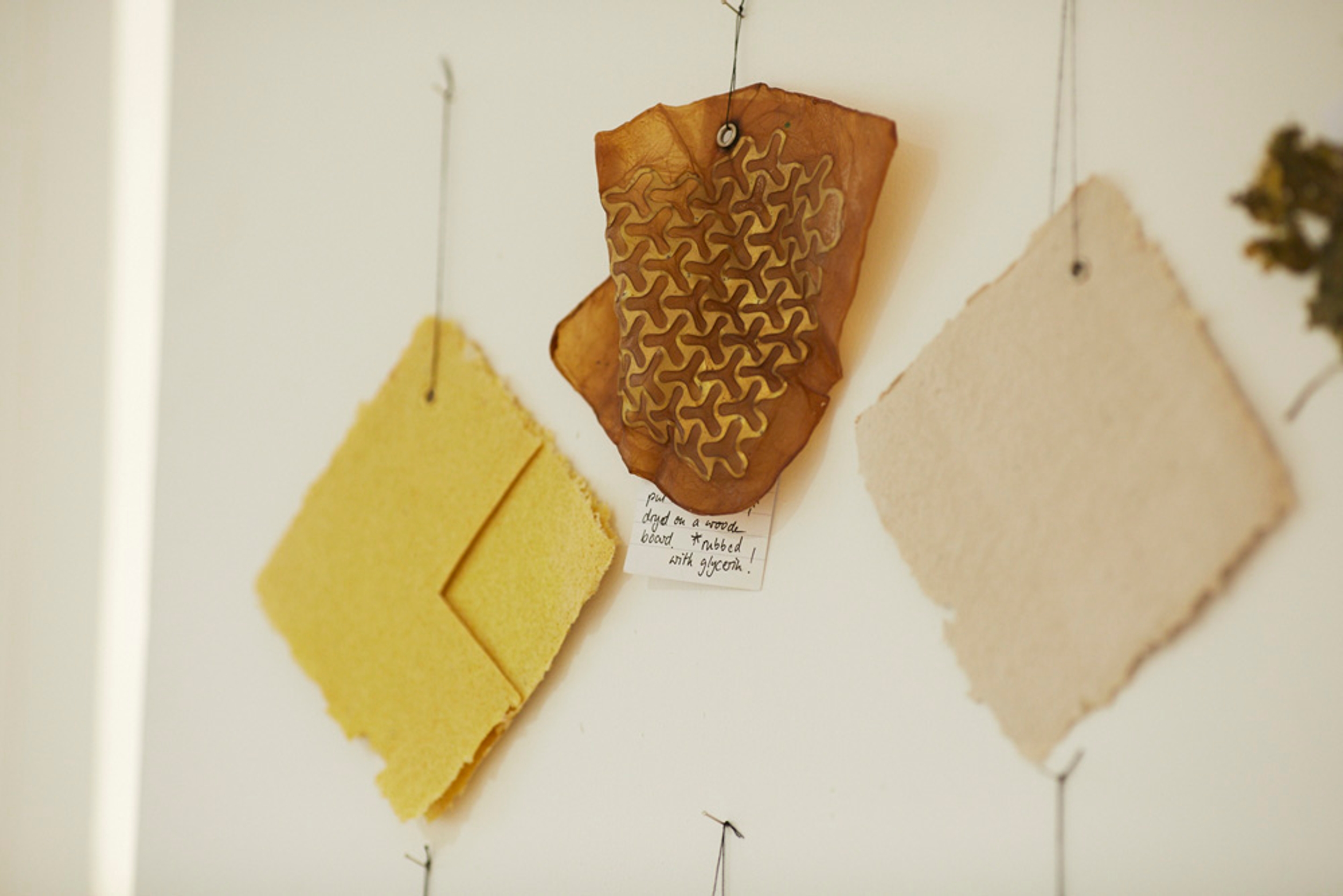
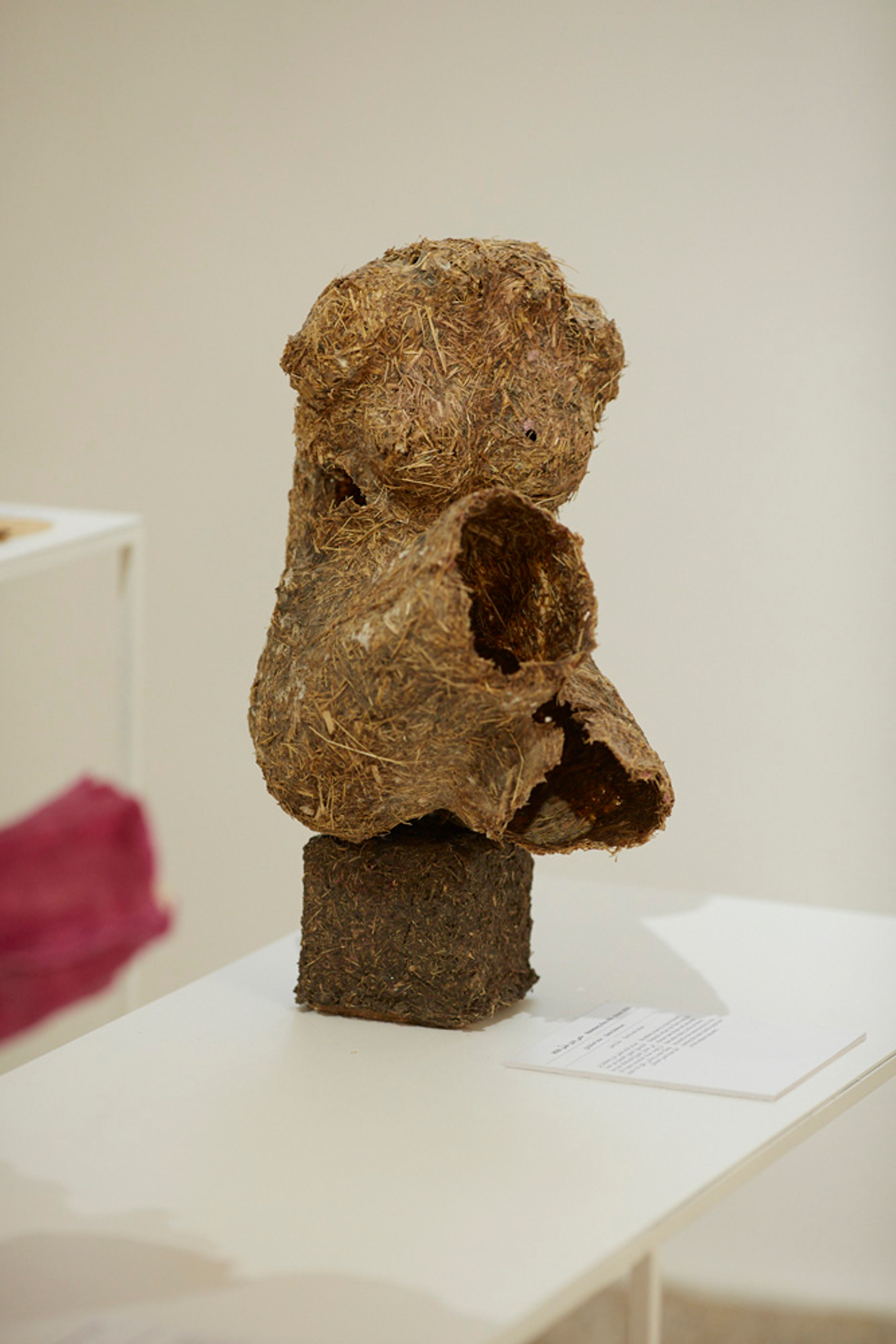
Sama Shahrouri — Rosemary, Kiss, Kill, 2019.
A figurative work originally sculpted in clay then molded to create multiple bioplastic casts.
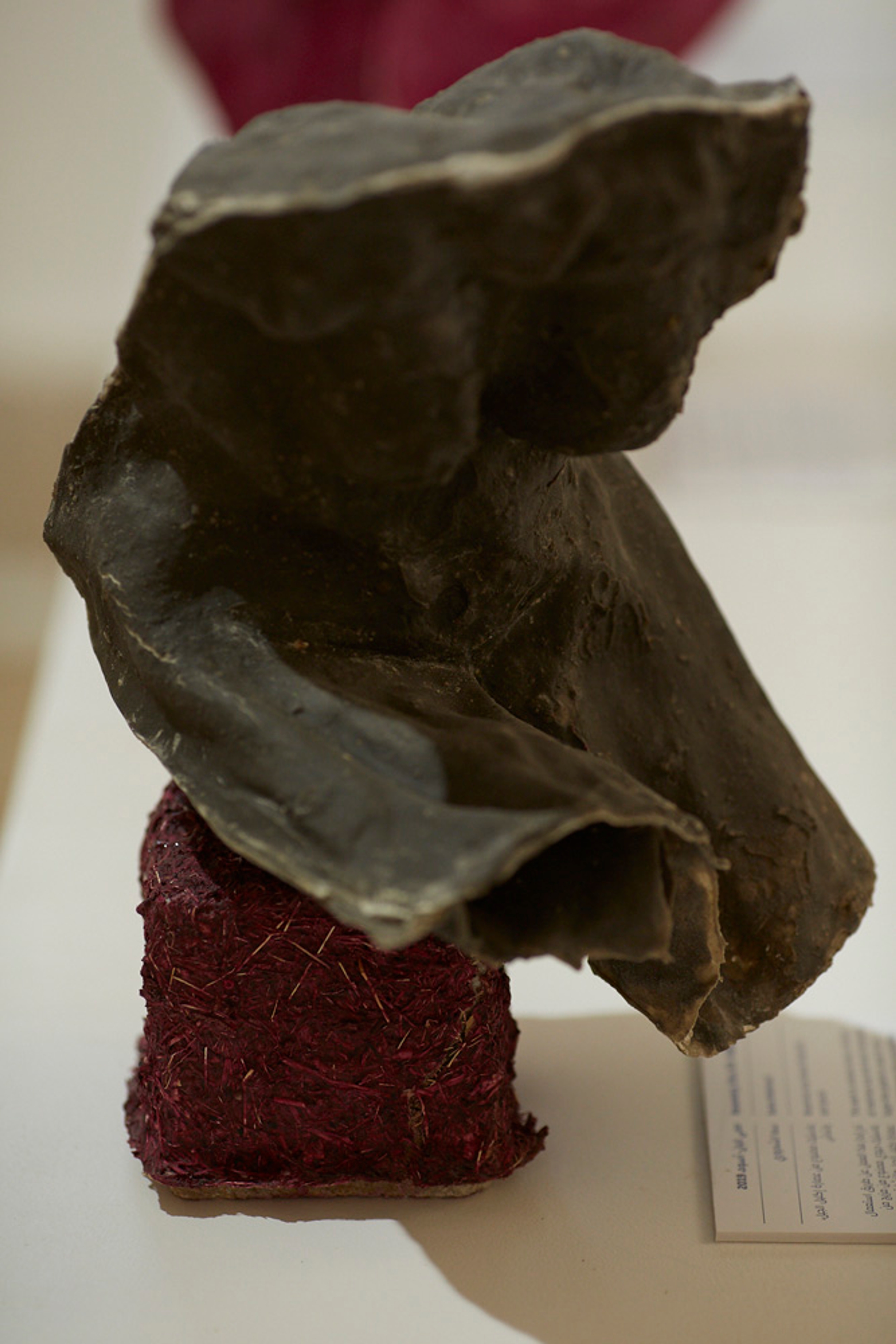
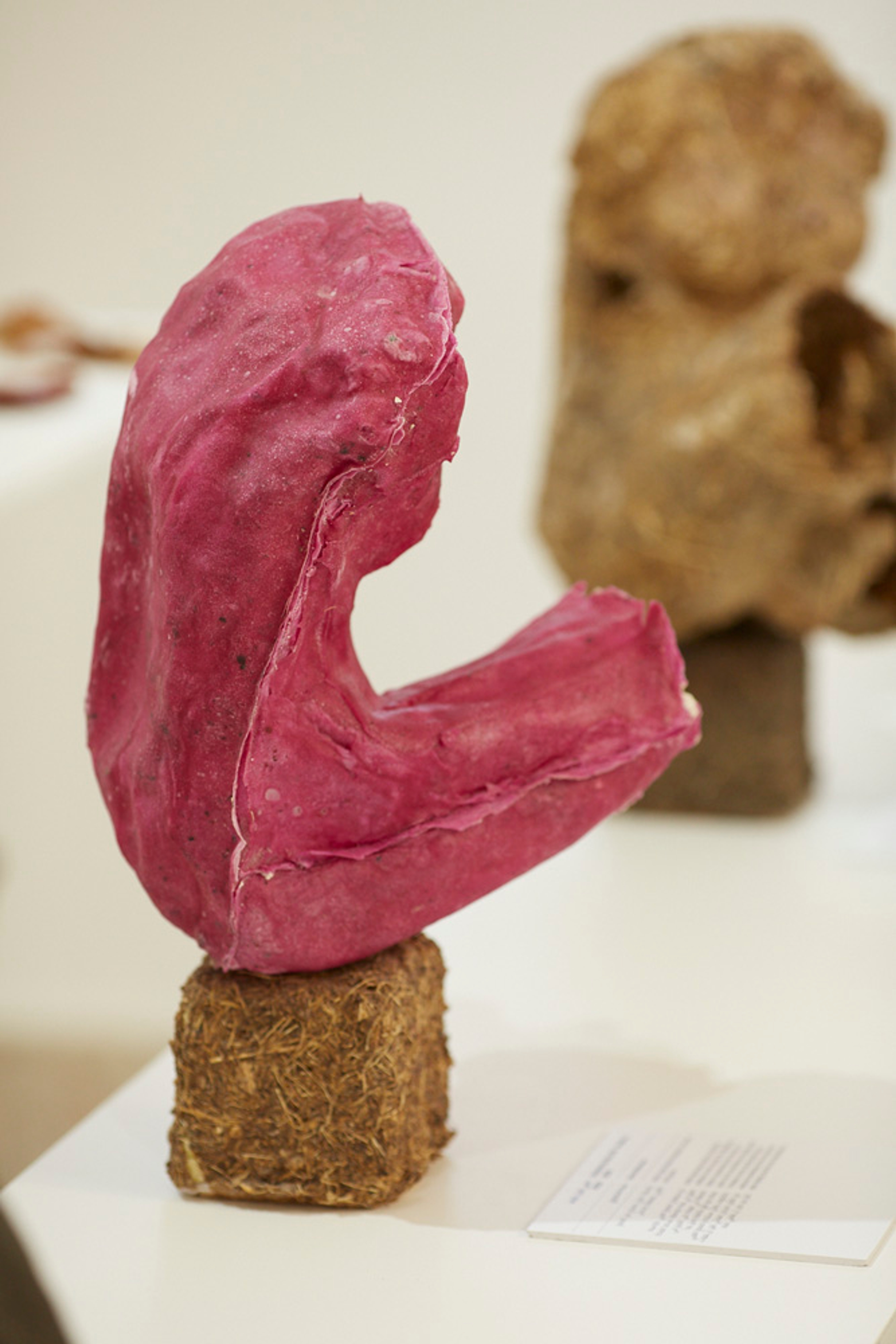
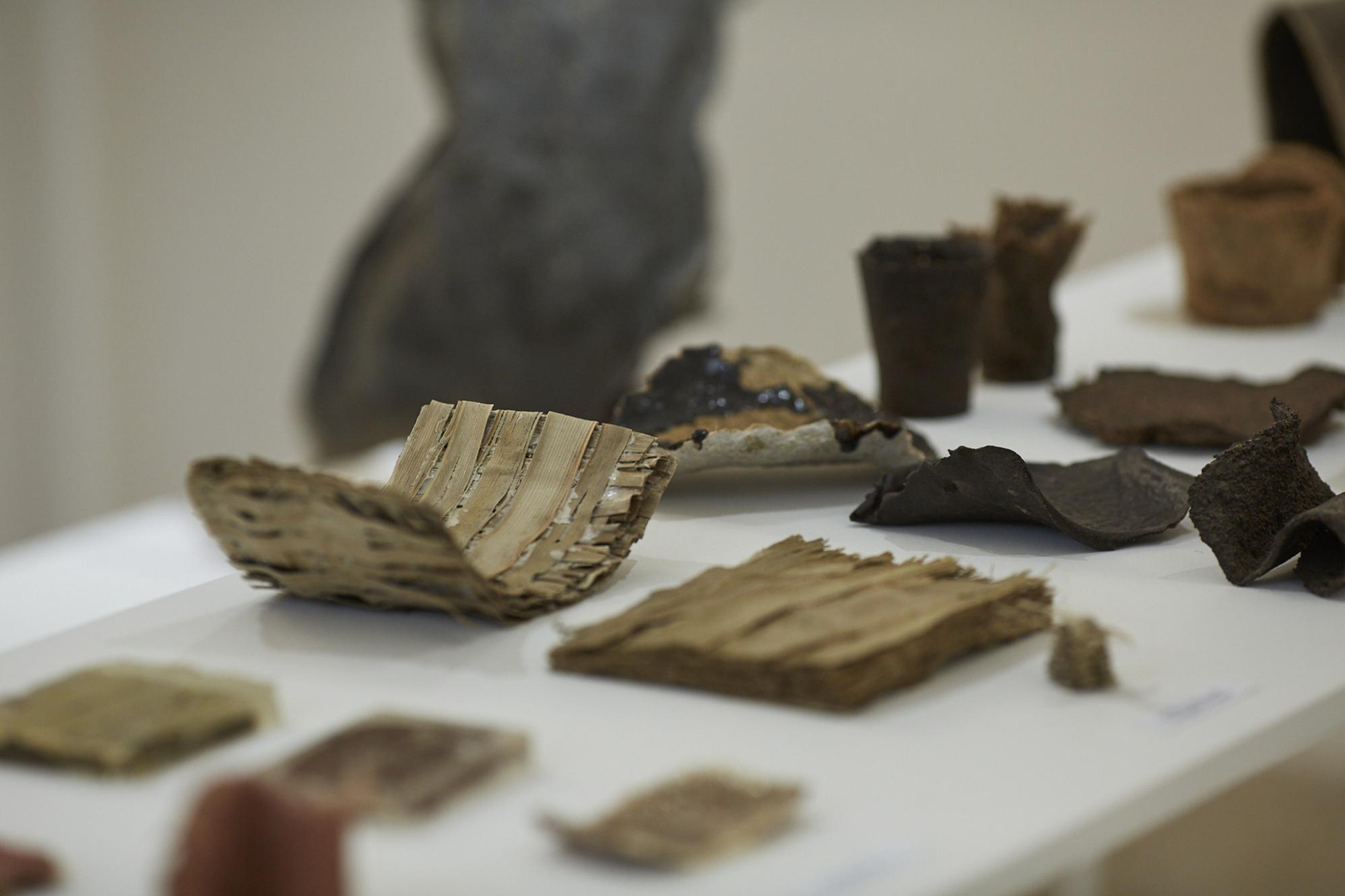
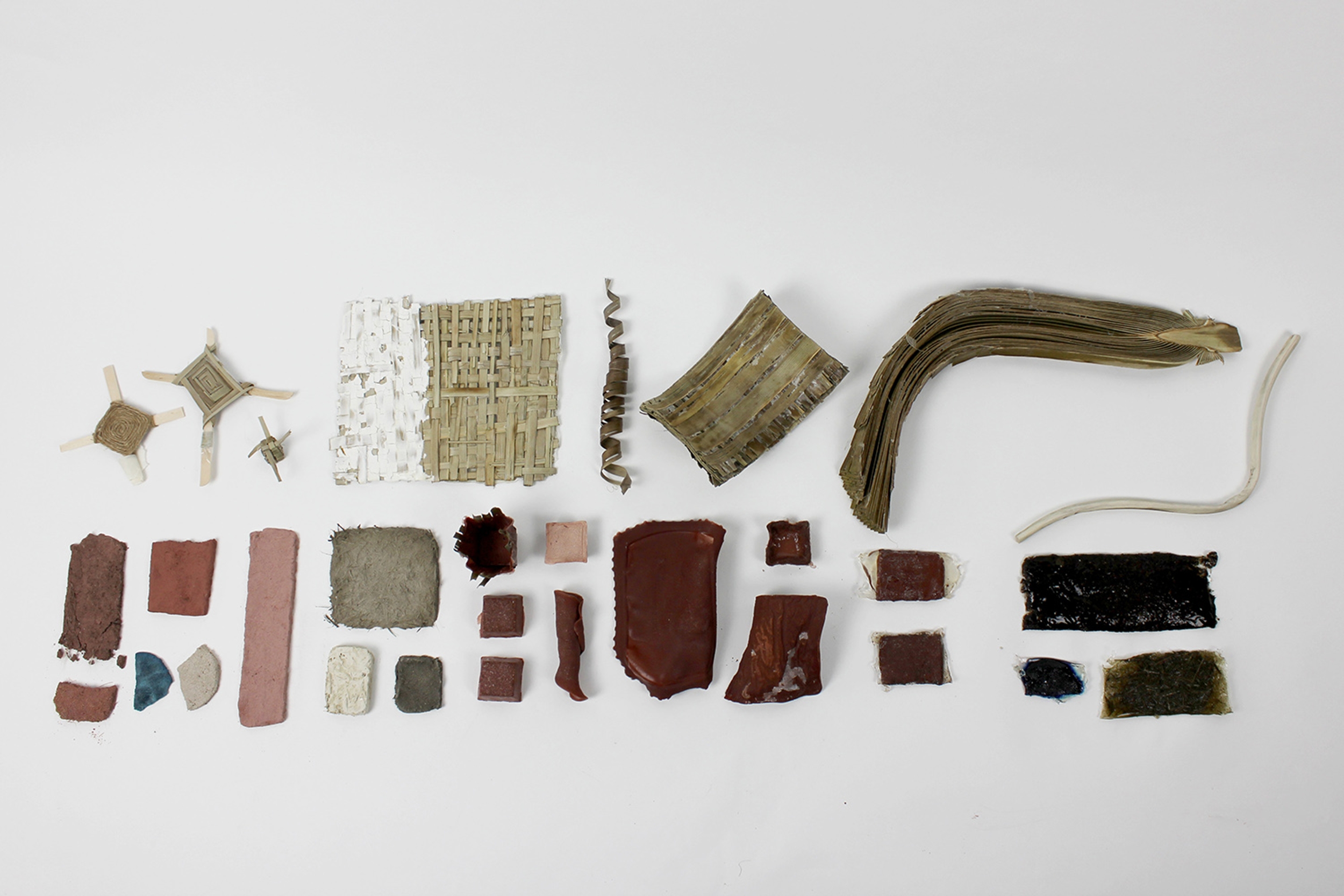
Twelve Degrees — Made from Jordan, 2019.
These samples are the results of an 8-month exploration using a variety of locally sourced raw materials including clay, dead sea mud, tree resins, stone, minerals, oil mill waste, and scoby.
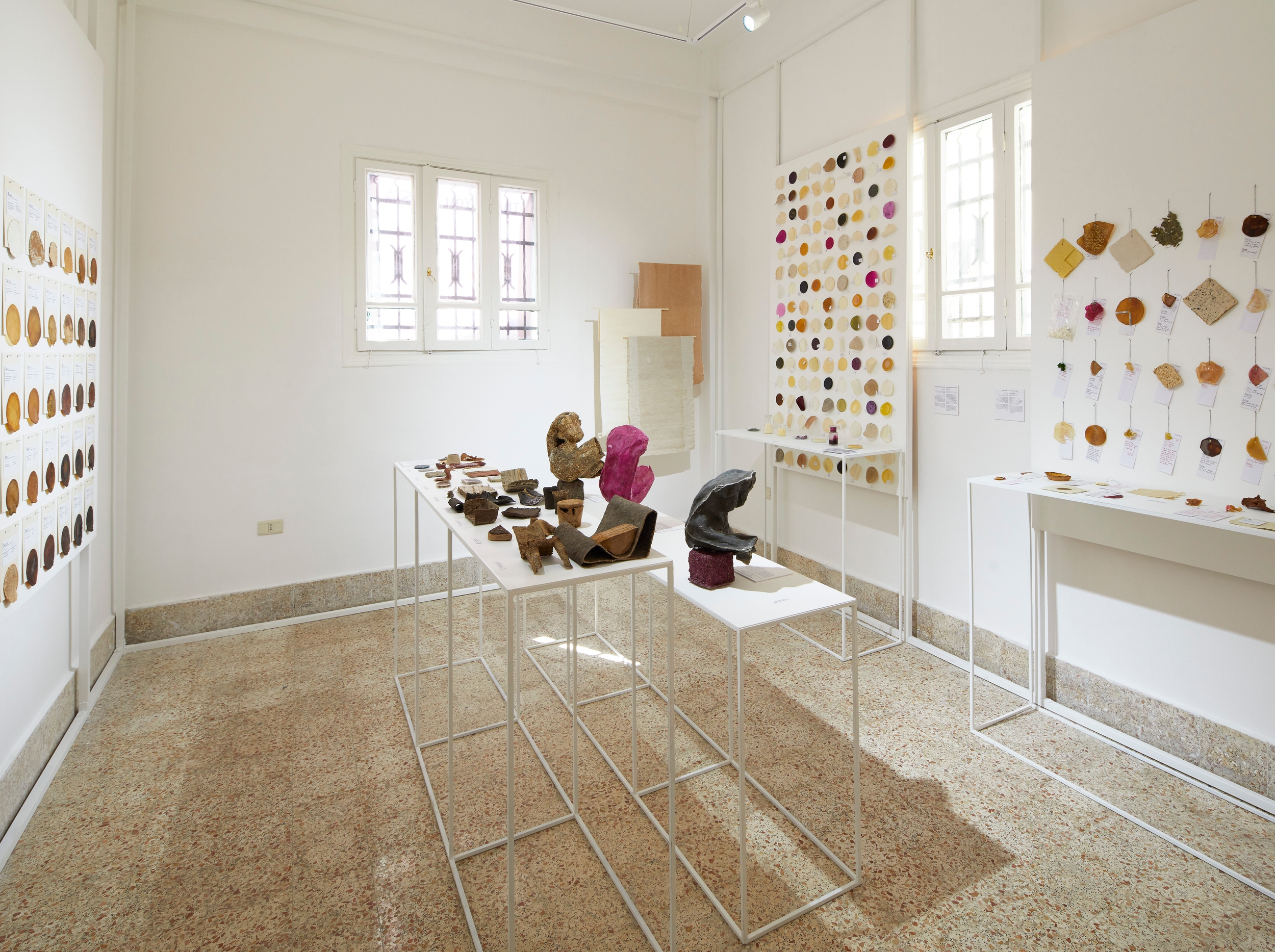
Annette Fauvel — Demonstration, 2018.
Samples of materials created using three different methods; kombucha-growing, paper-making, and bioplastic-cooking. The samples showcase the variety of possible results, properties, and hence speculative applications.
These methods contribute to a more sustainable, material future, as they are made out of 100% natural, non-toxic raw materials. Besides, most of the materials are found or processed in Jordan or can be replaced by local raw materials.
